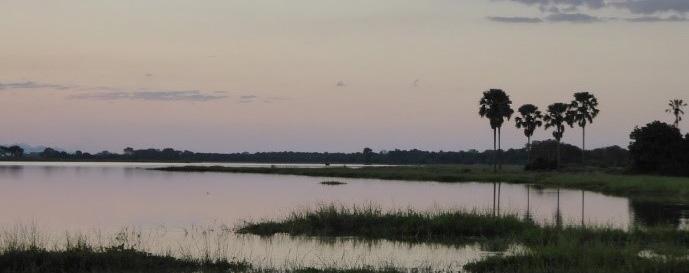
3 minute read
Moving to Malawi
Amy Potter - Moving to Malawi
After leaving Bristol Grammar School in 2000 with A levels in Biology, Chemistry and Russian, I completed an undergraduate degree in Biological Natural Sciences, specialising in pathology, and then an MSc in Control of Infectious Diseases.
Advertisement
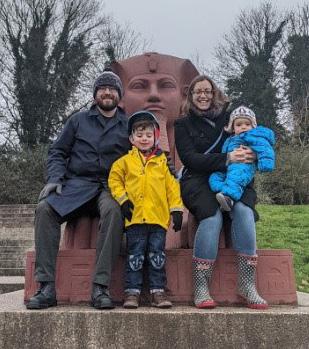
Family photo at Crystal Palace, South London, before leaving for Malawi
Since then, I have trained in health service management and public health (first through the NHS Graduate Management Scheme and then through national medical specialty training and exams), and have nearly 20 years of experience of developing and delivering public health policy, research and programmes to improve health outcomes and reduce inequalities. I have worked across government, academia, public sector and non governmental and community organisations, both in the UK and in low and middle income countries including The Gambia, Sierra Leone, Liberia, Ghana, Nigeria, Uganda, Malawi, Bangladesh and The Maldives.
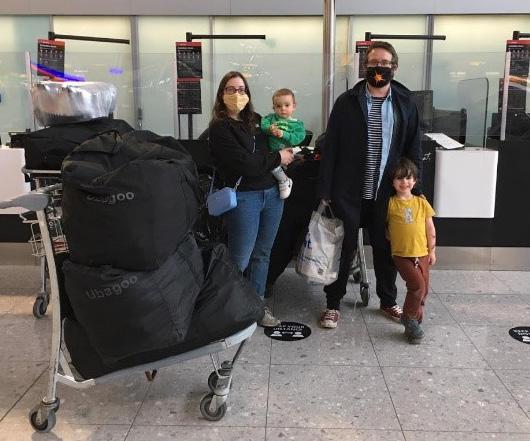
At Heathrow with all our bags – maxing out our baggage allowance as we didn’t know how long it would take for our air freight Heavy Baggage to arrive
In January, I started a new job in Malawi with my family – my husband Josh, four year old Isaac and one and a half year old Rosa – taking up a 3-4 year posting as Health Advisor with the UK’s Foreign, Commonwealth and Development Office (formerly DfID, the Department for International Development). I am leading a health systems strengthening programme that aims to improve maternal and child health and enable the government of Malawi to strengthen the functioning of the health system and better respond to health threats including COVID-19.
Moving abroad in a pandemic has been challenging, particularly not being able to spend quality time with our family and friends in the months before we left the UK (although my twin sister Vicki joined our bubble in the third lockdown so at least we got to hang out together!).
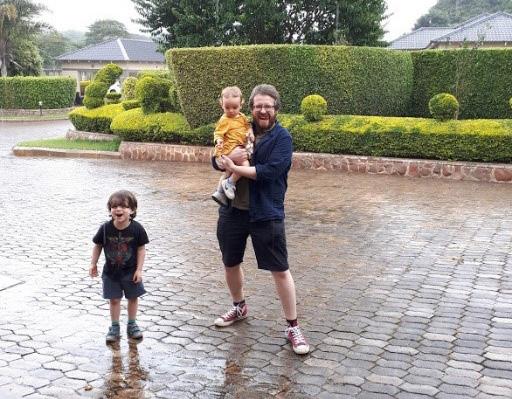
Arriving in Lilongwe at the end of the rainy season – outside our new home for the next 3 years
Now we are abroad, the limited likelihood of being able to return to the UK or to have any visitors any time soon given Malawi’s place on the UK’s Travel Red List (with mandatory two-week hotel quarantine on return to the UK at nearly £2k per person) is tough. However, having spent the last year in lockdown in London, arriving in Lilongwe has been a great change of scenery, and since the weather is a balmy high 20s most of the year, and the risk of COVID-19 transmission is currently low here, and lower outdoors, I’ve been able to meet new colleagues in person - albeit masked up - and to sit in a café for the first time in months. My son recently declared that he does not want to go back to the UK as he never has to wear a jumper here.
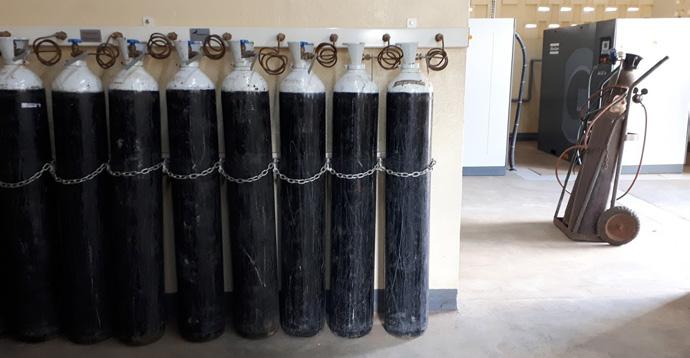
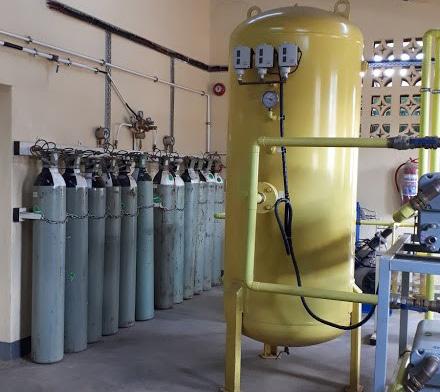
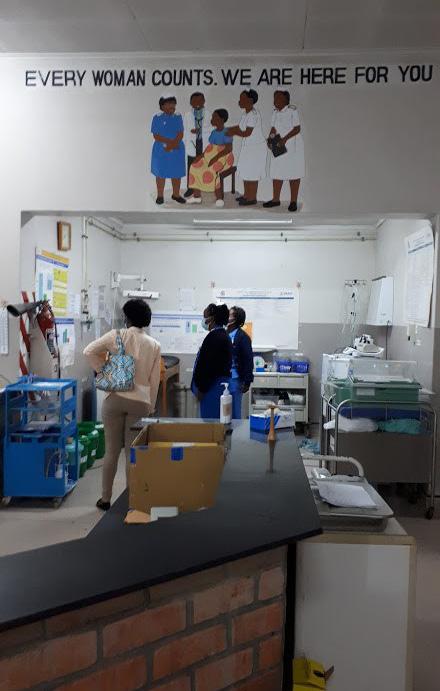
Monitoring visits to Kamuzu Central Hospital in Lilongwe: On-site oxygen plant that UKAid helped to fund through our COVID-19 response last year and discussing quality improvement work across maternal and child health with Labour Ward staff We haven’t spotted any cheetahs yet, but there’s always next weekend…
The job is challenging but rewarding - providing technical assistance to the Ministry of Health around how best to prioritise limited resources (annual health spend per capita in Malawi is around $35), chairing the Health Donor Group to coordinate resources and advocacy efforts amongst development partners, and liaising with implementing agencies including UNICEF and WHO to respond to COVID-19, support rollout of vaccines, and make sure that routine services such as immunisations and maternity services are maintained with a focus on equity and quality.
We are also very lucky that within a few hours’ drive of Lilongwe, there are plenty of family friendly places to explore after a hectic week at work, including the blue waters of Lake Malawi and national parks such as Liwonde, teeming with birdlife, hippos and big cats.
Amy Potter (Rowlands)
(1992-1999)
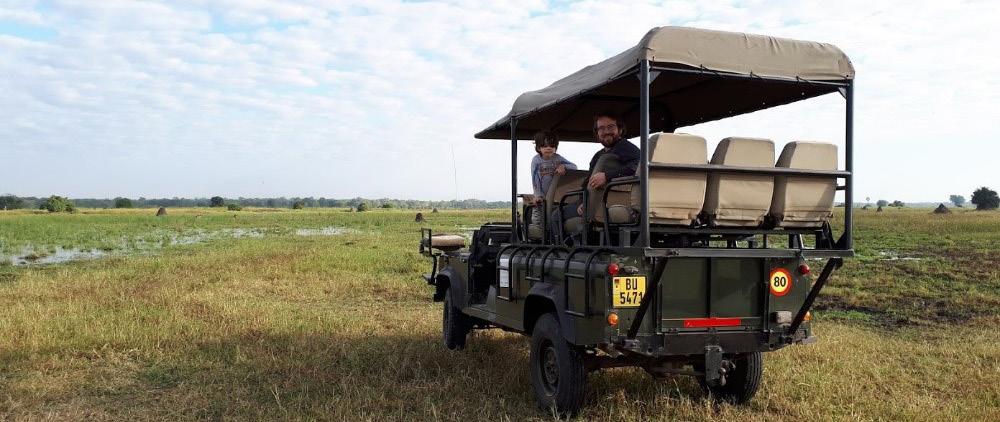
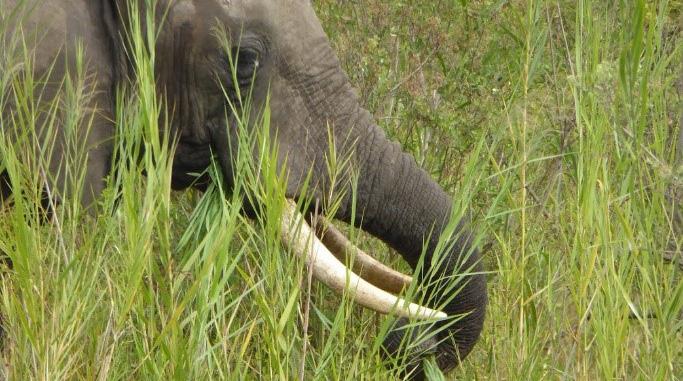
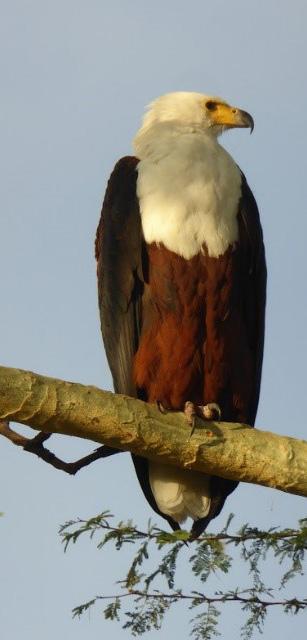
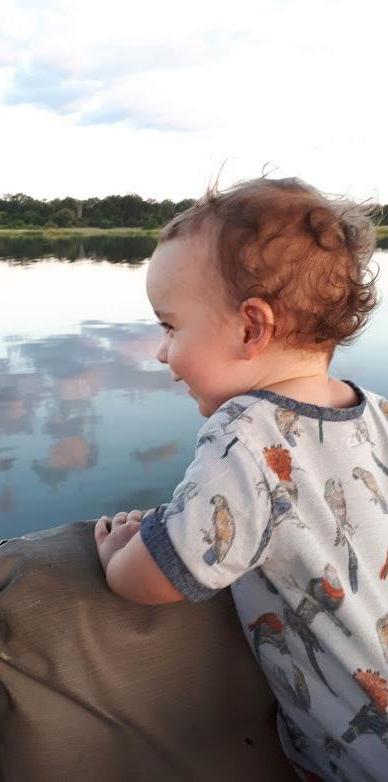
A long weekend on safari at Liwonde National Park – lots of birds (including Africa Hoopoe and African Fish Eagles) and wildlife (including elephants, hippo, monkeys, water buck, crocodiles)










